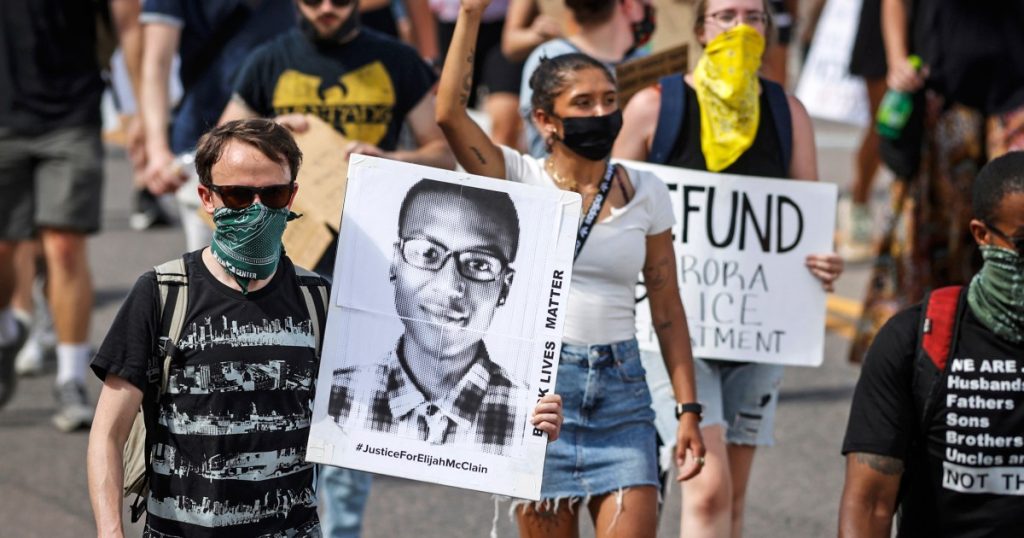A Colorado paramedic involved in the death of Elijah McClain was sentenced to four years probation, bringing an end to the prosecution of those involved in the Black pedestrian’s killing. Jeremy Cooper, a former paramedic, was convicted of criminally negligent homicide and faced up to three years in prison. Cooper’s sentencing followed the sentencing of paramedic Peter Cichuniec, who received five years in prison, and police officer Randy Roedema, who received 14 months behind bars. Officer Jason Rosenblatt was acquitted of charges and resigned after appearing in a controversial photograph. Another officer, Nathan Woodyard, was found not guilty and resigned after a backpay settlement.
McClain was stopped by police in August 2019 while walking home and was put in a chokehold, leading to paramedics administering ketamine, which caused him to go into cardiac arrest. He was taken off life support a few days later. Initially, prosecutors declined to charge the first responders involved, but a special prosecutor was assigned after national civil rights protests erupted in the wake of George Floyd’s killing. After two years, indictments were finally brought against three police officers and two paramedics in connection with McClain’s death.
The trial of the officers and paramedics saw a mix of convictions and acquittals. Cooper, Cichuniec, and Roedema were found guilty of criminally negligent homicide, with Cooper receiving probation and the others receiving prison sentences. Rosenblatt was acquitted of multiple charges but later resigned after a controversial image surfaced. Woodyard was found not guilty of charges and resigned after reaching a backpay settlement. The controversy surrounding McClain’s death and the subsequent legal proceedings have highlighted issues of police accountability and appropriate use of force in encounters with civilians.
The case of Elijah McClain has drawn national attention and sparked conversations about systemic racism in law enforcement. The use of ketamine to sedate him, the chokehold that was used during the encounter, and the delayed prosecution of the officers involved have all been points of contention. The involvement of paramedics in McClain’s death also raised questions about their role in policing activities and the potential for medical professionals to be complicit in instances of excessive force. The sentencing outcomes for the officers and paramedics involved have been met with mixed reactions from the public.
Overall, the sentencing of Jeremy Cooper, along with the previous convictions and acquittals of other first responders, represents the conclusion of a years-long legal process in the wake of Elijah McClain’s death. The special prosecutor assigned to the case, along with the public outcry and protests that followed, have brought greater scrutiny to the actions of law enforcement and paramedics in cases of police violence. While some view the sentences as justice served, others believe that they do not go far enough in holding accountable those responsible for McClain’s death. The aftermath of this case may continue to drive conversations about police reform and accountability in communities across the country.


